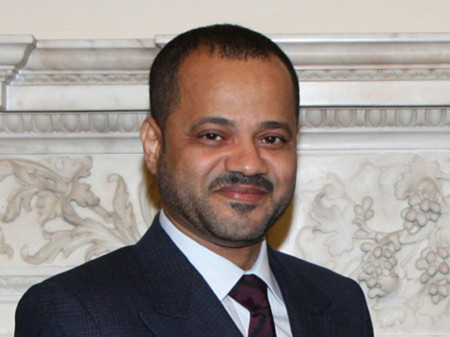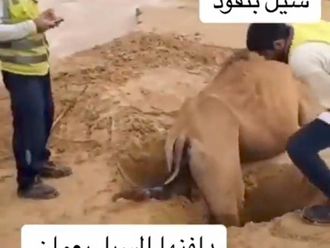
Muscat: Three decades after the creation of the Gulf Cooperation Council (GCC) and after several years of carefully measured initiatives that strengthened the organisation, the Sultanate of Oman forged ahead, embarked on steady diplomacy that allowed it to play a key mediating role in regional disputes. What stood out was consistency, which Omanis practised with a vengeance, aware that traditional societies benefited from such preferences.
Sayyed Bader Bin Hamad Al Busaidi, who joined the Ministry of Foreign Affairs in 1988 and was promoted to undersecretary in 2000 and subsequently became the Secretary General of the Ministry, clarified the Sultanate’s positions on several issues regarding recent concerns within the GCC. He emphasised that Oman will forge ahead with the regional alliance’s ongoing commitments and will continue to work in earnest to end differences. In a frank conversation, he underscored some of the reasons why his country did not see union as a worthwhile enterprise, though he was adamant that the Sultanate remained a full supporter of the GCC alliance. A seasoned diplomat, Sayyed Bader explained why it was critical to maintain the best of ties with Iran, a policy initiated by Sultan Qaboos after he assumed the throne in 1970.
The text of the full interview follows:
Gulf News: As a founding member of the GCC, the Sultanate of Oman finds itself at odds with several of its partners on the organisation’s future. It has ruled out joining the proposed union and sees its future regional role differently. What are Oman’s views on the GCC union and where do you see the country moving?
Sayyed Bader: We don’t find ourselves at odds with our brothers in the GCC. Differences of opinion are common and natural between partners, just as in family life. Oman simply doesn’t see it as realistic for the GCC to move to a union. But if that is what our brothers in the GCC wish to do, and if they take the necessary steps to make it happen, then that will be a new reality which we will have to deal with. For the time being though this all remains hypothetical. Furthermore, let me be clear and say this one more time — we do not feel at odds with our brothers. There is a continuous dialogue between us, which is a positive and necessary aspect of relations within the GCC. Let us consider the question of a currency union. For some time now some of our partners have been interested in this idea, but all the same, after a number of years, progress towards it remains inconclusive.
Gulf News: If the GCC Union materialises, how will Omani ties develop with its Arab Gulf neighbours? More specifically, will there be changes in intra-Gulf ties?
Sayyed Bader: As suggested in my previous answer, this is quite a big “if”. We don’t see any scenario under which Oman’s relations with her neighbours are threatened, and specifically we do not anticipate changes in intra-Gulf ties.
Gulf News: Since the main difference between GCC states is the relationship with Iran, how do you see the evolving Omani-Iranian ties as being beneficial to the Arab world in general and the Gulf States in particular?
Sayyed Bader: The Sultanate of Oman’s relations with Iran undoubtedly encourage peace and stability. His Majesty Sultan Qaboos has played a hugely important role in ensuring world leaders gain a more realistic understanding of the different aspects of Iran’s international relations, and an understanding of Iran’s legitimate concerns. The same is true for the Gulf States. Our brothers and the international community appreciate His Majesty’s wisdom, compassion, and experience, which he offers to the world for the common good.
Gulf News: In that context, what can or should be done to put out the fire that is consuming Sunnis and Shiites, which seems to envelop the Arab and Muslim worlds. How dangerous is this struggle and what are its repercussions if nothing is done to prevent its spread?
Sayyed Bader: Sectarianism has been a big problem but only in recent years — after the human suffering it is perhaps the most damaging consequence of the 2003 war in Iraq. We must remember our history — for hundreds of years different sects and even religions have lived side by side in peace. This is still the case in Oman, for which we are truly grateful and thankful to Allah and to our wise leadership. But it was also the case in many great cities such as Baghdad, Damascus, Basra, and Aleppo. All these cities had their Sunnis and Shiites side by side; intermarriage was widespread, and among them were also Christian and Jewish communities. Much of this has been lost, and that is a matter of great regret. I like to think of [Oman’s dominant sect] Ibadism as the non sectarian sect. I remember as a boy and to this day finding myself welcomed in any mosque. This is still the case in Oman and this is how it should be. There is an ethical imperative that we should all accept diversity and live in peace based on mutual respect.
Gulf News: Which countries benefit from such confrontations and is there any room for pragmatism to lower tensions?
Sayyed Bader: No one benefits from sectarian confrontation — one or other faction may win temporary advantage, but in the long run everybody loses because stability and security suffers. Without stability and security there is no investment nor any meaningful development. Without investment and development there are no jobs. Without jobs there is no future. In settling conflict, pragmatism is essential — prejudice and ideology has to be put to one side.
Gulf News: It took GCC states nearly a year to help Qatar mend its ties with Saudi Arabia, Bahrain and the UAE. What role did Oman play in those negotiations and what measures have GCC states taken to prevent that unfortunate episode?
Sayyed Bader: We don’t like to speak in public and in detail about our diplomatic efforts. The best way to help our brothers and friends is whenever possible to offer public support and private candour. Episodes of disagreement inevitably occur from time to time, as I said earlier — we have to accept it, just as it is part of family life.
Gulf News: How will the Sultanate engage its Gulf partners to adopt more pragmatic steps to limit the spillover effects of the Arab Spring and the rise of such groups as Daesh?
Sayyed Bader: Again, this is all part of the continuous dialogue in which we engage, a dialogue that helps us all understand the real causes and effects, before finding and taking the pragmatic steps of addressing such problems and challenges.
Gulf News: What has been the contribution of the Sultan to Omani diplomacy?
Sayyed Bader: Oman’s capacity to be constructive and effective in its diplomacy is founded on the vision and leadership of His Majesty the Sultan, may Allah protect him. In the last 270 years or so of our history, Oman has been blessed with a number of great leaders, most prominently — Imam Ahmad Bin Saeed, the founder of the Al Busaid dynasty, Sultan Said Bin Sultan, the founder of the Omani empire, and His Majesty Sultan Qaboos Bin Saeed, the founder of the modern Omani state. It is the greatest blessing of my life to have the opportunity to serve His Majesty, and I believe all Omanis share this sense of gratitude. It is this that makes our country strong and united, thanks be to Almighty.












